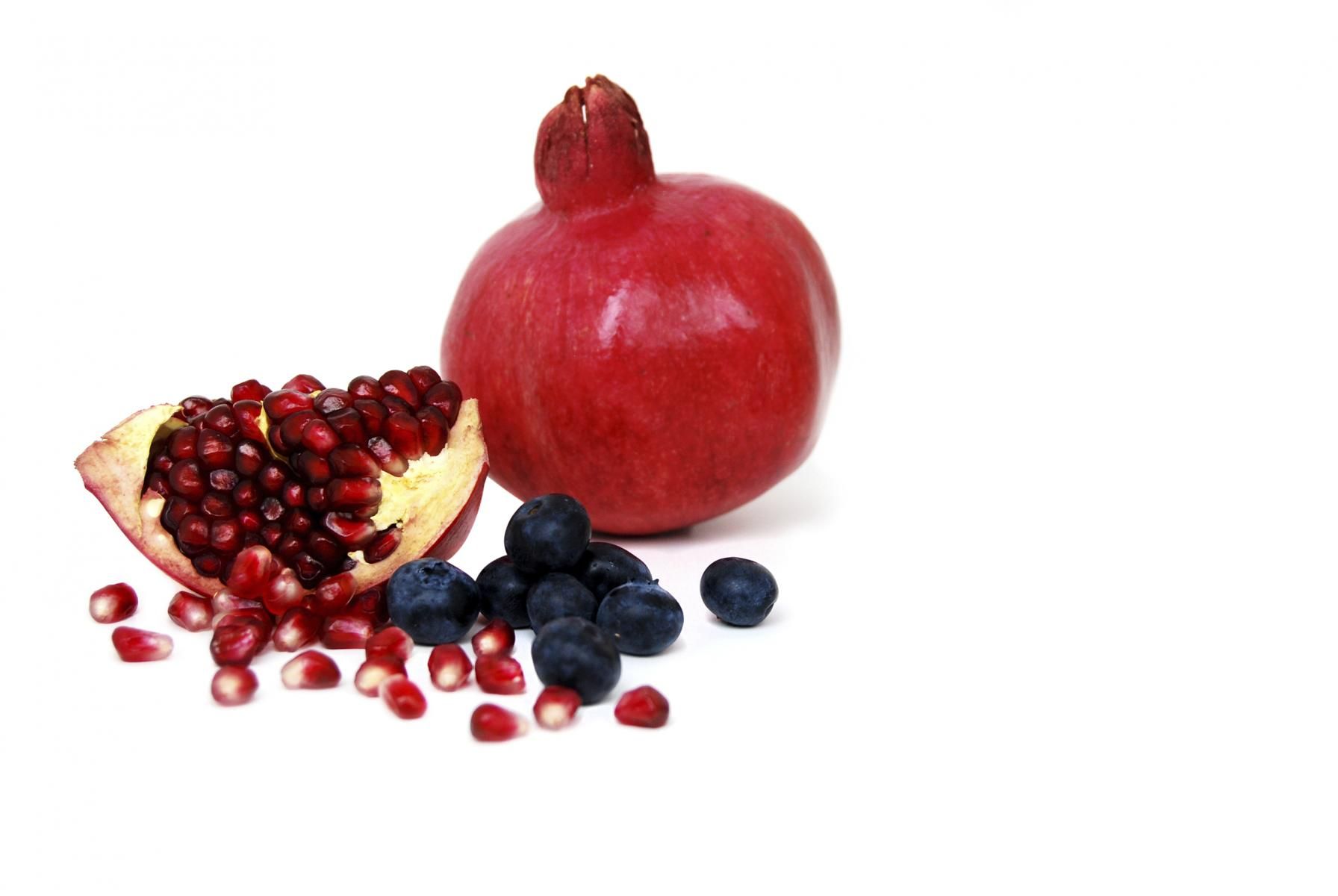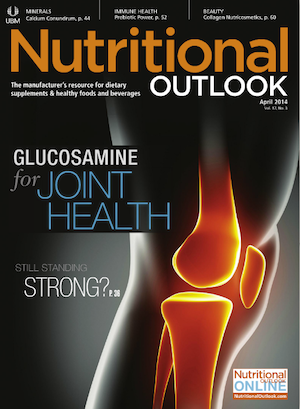POM vs. Coke: The Fight over a Food Label
POM Wonderful complained that Coke’s Minute Maid Pomegranate Blueberry 100% Fruit Juice Blend’s name and label trick consumers into thinking the product contains a lot of those juices.

In April, the Supreme Court will hear arguments in a false-advertising case over food labels. In this case, POM Wonderful sued The Coca-Cola Company over its Minute Maid Pomegranate Blueberry 100% Fruit Juice Blend. POM complained that Coke’s product had only a small percentage of pomegranate and blueberry juice, and claimed that the product’s name and label trick consumers into thinking the product contains a lot of those juices. But, as Coke argued in a successful motion to dismiss the case before trial, the Nutrition Labeling and Education Act specifically allows juice blends like this to be named after the juices that provide the product’s characterizing flavor-without having to name all of the juices in the beverage or list their proportions. The California federal judge and the Ninth Circuit Court of Appeals both agreed that they shouldn’t second-guess Congress and the FDA’s decision that this practice is okay.
Federal Regulations and Safe Harbors
POM’s appeal boils down to the position that you can still lodge a legal challenge to anything on a regulated label that isn’t affirmatively mandated. For instance, the food label regulations say that Coke can name the juice blend “Pomegranate Blueberry,” naming two ingredients that provide flavor but that are present only in small quantities-but the regulations don’t say that Coke must name those ingredients. In POM’s view, the fact that the FDA permits juice makers to give their beverages this type of name doesn’t mean that the practice isn’t deceptive. If POM can produce survey evidence that the label misleads consumers, POM should be able to sue. Similarly, labeling regulations clearly permit Coke to have pictures (“vignettes” in regulation jargon) of pomegranates and blueberries on the label, but they don’t require that the pictures be of these particular fruits.
This is how POM’s view could translate to other contexts: if the FDA ever defines what “natural” means on food labeling, plaintiffs could pretty much ignore it. The food may qualify as natural by the FDA’s definition, but if a substantial number of consumers read the label and think “natural” means something else, the label could be challenged if the product isn’t whatever they think it means. Regulations that permit, but don’t affirmatively require, a food maker to do something would provide no safe harbor against litigation.
Coke’s view of the law is that if FDA regulations expressly authorize a certain labeling practice, even if they don’t mandate it, then it is inconsistent with those regulations for a court to find that the authorized practice is nonetheless misleading and should be stopped. In contrast to POM, Coke argues that approved but non-mandatory labeling practices create safe harbors-that is, if the Congress and the FDA (an enforcement agency, part of the executive branch) specifically allow a practice, they are saying it’s non-misleading. And there is some language suggesting that is true. (However, the FDA’s statement that, “The agency also concludes that it is not necessary to require that each juice in a beverage be named to ensure that the label is not be [sic] misleading” occurred in the discussion of comments upon publication of the regulations rather than in the regulation itself.) Litigation challenging such things as misleading contradicts that finding and therefore should be precluded.
“Could” versus “Does”
According to the parties in POM v. Coca-Cola, much also hinges on another issue: whether a claim should be barred only if the government does regulate something, or if it should be barred because the government could-i.e., has authority to-regulate it. Beyond this issue of principle there is a practical issue: the line between “could” and “does” is not as bright as it might sound.
Where the government has issued some regulations concerning a label, has it regulated the whole label, or just the parts of the label specifically discussed in the regulations? And even as to those parts, has it “regulated” every characteristic, or only those mentioned in the regulations? The government may regulate the wording of a common and usual name for a product, but not how prominently that name is displayed. It may regulate the font size of a disclosure, but not its color or exact placement on the label. It may regulate whether images of minor ingredients may be used, but not, to quote one of POM’s trial-level arguments, how “luscious” they appear.
Assuming that the FDA never gets around to regulating the degree of lusciousness of a label vignette, it would seem that plaintiffs always will be able to find something about a label that has not been affirmatively regulated-although proving that it is that unregulated aspect that causes some deception is another matter.
Implications beyond Competitor Actions
Pom Wonderful v. Coca-Cola is a competitor false-advertising action brought under the federal Lanham Act. Section 43(a) of the Lanham Act gives a federal right of action for false advertising to a company’s competitors and a narrow band of other interested parties. Consumers and other customers generally can’t sue for false advertising under the Lanham Act or any other federal law. So, on its face, this Supreme Court case won’t control consumer class actions brought under state deceptive-practices laws, which typically involve much higher damages claims and have become a significant issue for advertisers.
But it may not be that simple. The defense argument that “the federal government has already regulated my label; you can’t challenge it” exists also in state-law deception cases and is an important defense when a regulated label is challenged. In the state law context, it has a different name and different philosophical roots.
When previous action by the legislative and executive branches of the federal government blocks action by the courts, as in the POM Wonderful case, lawyers say that the litigation is “precluded,” and the basis is mainly one of appropriate policy and judicial efficiency. Judges respect the turf of the legislative and executive branches and have better things to do than re-decide issues that Congress and the enforcement agencies already have decided. So they lay off, in what is largely a judge-made doctrine. On the other hand, when federal law blocks a state-law lawsuit, it is called “preemption” and reflects the supremacy of federal over state law. Under Article 6 of the Constitution, “the Judges in every state shall be bound … [by] the Laws of the United States,” and they can’t go around deciding that Congress or the FDA got it wrong. That’s non-negotiable. But it still comes back to the question of: which parts of a label are federally regulated-meaning that state judges have to back off-and what parts are not?
There’s no particular reason that the analysis of the two doctrines should be the same or lead to the same result. In practice, though, federal and state false-advertising claims often are made together, when a competitor files Lanham Act false-advertising claims with state unfair-and-deceptive-acts-and-practices (UDAP) claims appended under pendent jurisdiction. POM does this in the case now before the Supreme Court. Often, in such cases, the court decides one issue and then follows the same logic in ruling the same way on the other.
If the Supreme Court’s decision provides clear guidance on whether Lanham Act claims should be precluded, it is easy to imagine courts deciding the Lanham Act preclusion issue first, and then following the same logic to the same conclusion about the preemption of pendent state claims. That logic would then become precedential for other suits alleging state UDAP claims alone-namely, consumer class-actions. So whatever the Supreme Court decides in POM Wonderful vs. Coca-Cola, it may have an impact on consumer class cases.
Given this, advertisers will want to watch this case very closely.

Magnesium L-threonate, Magtein, earns novel food authorization in the European Union
December 19th 2024According to the announcement, the authorization is also exclusive to AIDP and its partner company and licensee, ThreoTech, meaning that they are the only parties that can market magnesium L-threonate in the EU for a period of five years.
Senate Committee has released the text of 2024 Farm Bill, with changes to hemp regulations
November 19th 2024The U.S. Senate Committee on Agriculture, Nutrition, & Forestry has introduced the Rural Prosperity and Food Security Act, which will serve as the Senate’s draft for the 2024 Farm Bill.